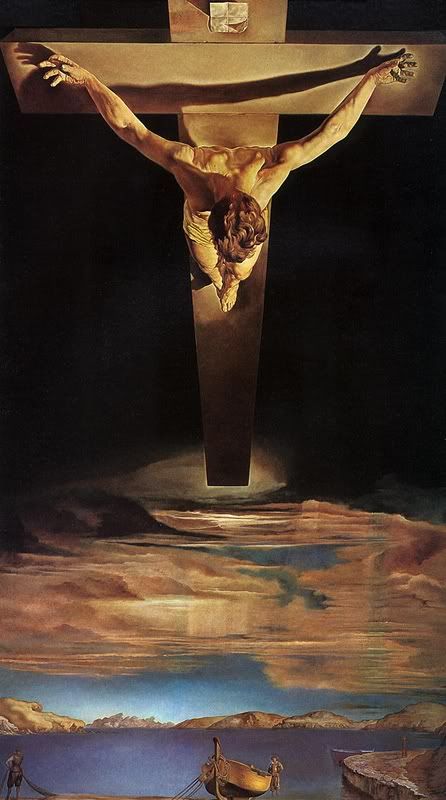 On Good Friday Christians around the world commemorate the death of Jesus. I confess I've never been able to entertain the strange notion that Jesus' death magically takes away our sins.
On Good Friday Christians around the world commemorate the death of Jesus. I confess I've never been able to entertain the strange notion that Jesus' death magically takes away our sins.There are various versions of how this works: the most common being a very primitive and barbaric suggestion that Jesus died in our place. Such a claim presents a view of God that is hardly lovable.
So I don't prefer to think of today as the day of remembering how Jesus "died in our place" or some other such weird notion.
What I choose to remember is that Jesus was crucified by imperial power. The reason, historically, that Jesus was executed - think about that executed! - was because he disturbed the status quo. In the name of the Kingdom of God - the Jewish God of justice and peace - Jesus condemned the ways of empire, and the system of domination and exploitation.
The death of Jesus was a direct result of his passionate commitment to peace, justice, and compassion in the name of God and God's kingdom. That is what ought to be remembered.
The great Medieval theologian Peter Abelard argued that Jesus' death should not be understood as a substitution or a ransom paid, but as an example of divine love. An example that, if we truly contemplate it, transforms us so that we become better people.
Abelard, it seems to me, was right. The importance of the death of Jesus is that it shows how committed he was to the central goal of his life, and inspires us to be just as committed.
The religious importance of this death, for Christians, is this: Jesus' death was not merely the result of his commitment to justice and compassion. Rather, it was also his firm conviction that God is found chiefly in a life of Justice and compassion; a life he himself embodied.
Note: I originally published this post last year. I thought it worth re-posting
Hello Matt,
ReplyDeleteThere's a book called Jesus and Buddha, Conversations, by Carrin Dunne. The last story is of the night before Jesus' death. That is the most striking image. From it I've taken a couple of ideas from the significance of Jesus' death. True, I'm not a christian, but this is how I see it. The crucifixion is a template that gives meaning to all of the small instances of mercy, kindness, tenderness, quite sacrifice. Jesus' sacrifice binds all these small and at times great acts of kindness together so that they are weaved into a tapestry of humanity. Without such a template all these acts by different people in different times have no connection. God, a universal god like the monotheistic gods are supposed to be, connect a people--make a group of individuals into a people. Jesus' sacrifice makes each act of kindness, no matter how small, into something beyond the circumstances.
The crucifixion helps us accept our own fear of self-sacrifice and to go beyond it, and so to go beyond our sins. So, the crucifixion cleans us of sins because it lets us accept ourselves, accept our fear when we face our own sacrifices for others, and connects all these small acts of kindness into one beautiful idea. Otherwise our acts of compassion for others, which are sometimes very small, all the small deeds that help others, are lost in time and the sheer immensity of pain we feel and other's feel and that we cause each other to feel. The crucifixion makes each small act of kindness connect to every other small act of kindness so that compassion is greater than pain.
Mr. C